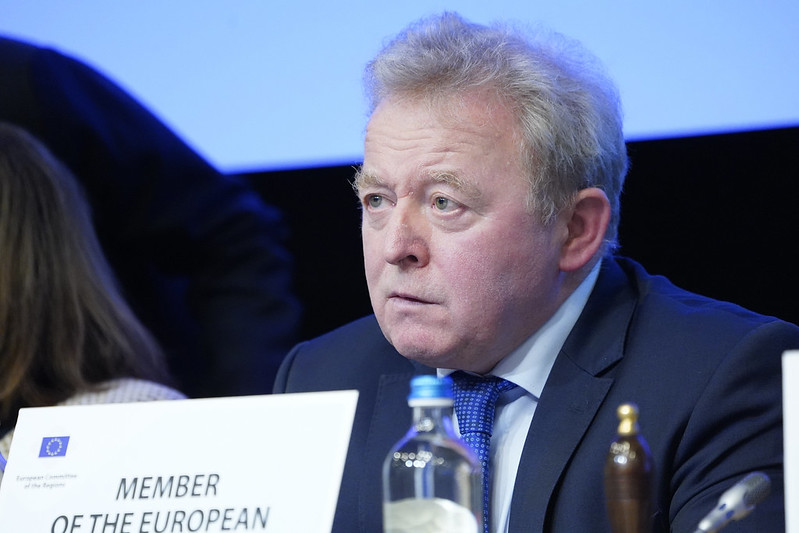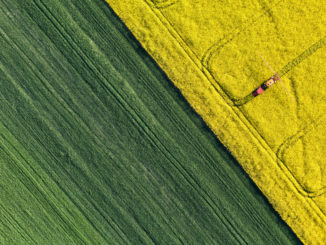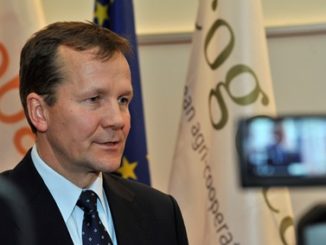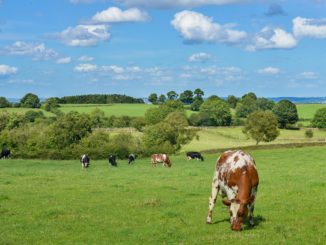
The European Commission has announced that it will officially launch its strategic dialogue on the future of agriculture – proposed as a way to bridge the divide in the agrifood sector – in January. Meanwhile the Ag Commissioner already has a big idea – a 3rd Pillar of the CAP. So what’s the scope of this dialogue? And what’s this about a new CAP Pillar? Natasha Foote brings you up to speed with the latest on what we know so far.
A strategic dialogue on the future of agriculture, announced by the European Commission President Ursula von der Leyen in her State of the Union address back in September, was proposed as a way to foster “more dialogue and less polarisation” in the sector.
Although vague on details, the reference to the launch of the dialogue was seen by many commentators as a way to press pause the EU’s flagship food policy, the Farm to Fork, after a number of key sustainable agrifood files buckled under the weight of political pressure ahead of the looming EU elections.
Now, Commission President Ursula Von der Leyen has offered some tentative first details about the shape of this strategic dialogue in a video message addressing agrifood stakeholders at the EU executive’s agricultural outlook event on Wednesday (6 December).
Promising that it will involve the full spectrum of the agrifood sector, from producers to processors, the President announced that the dialogue – the official launch of which is now set for January, 2024 – will orient around several core questions.
These include how to give farmers and rural communities “a better perspective,” including a fair standard of living, as well as how to support agriculture “within the boundaries of our planet and its ecosystem” and how to maximise the use of “innovative technologies” in the sector.
“These are just some of the questions on which your contributions will be crucial,” the President said, calling for input from all agrifood actors.
Strategic dialogue for… food systems?
While its announcement was welcomed by many stakeholders, including EU agriculture ministers and food industry groups, the dialogue has also sparked criticism among others for the fact that its official title concerns only agriculture. This was seen by many as a step away from the holistic ‘systems’ approach championed by the Farm to Fork strategy.
For instance, the move prompted a coalition of green campaign groups, including the likes of the European Environmental Bureau and WWF, to write to the Commission at the time setting out their concerns on the “narrowing” lens of the dialogue.
Read/Download the NGO letter Letter on the Strategic-Dialogue on the Future of EU Farming
Stressing that, like hundreds of civil society organisations and food systems experts, the Farm to Fork Strategy and its cross-cutting food systems approach remains the “best way to achieve these important political objectives,” the group of associations said they were “alarmed” to see the change of course.
A move back to a “narrow focus on agriculture” would do “huge disservice to European people, our environment, and our farmers,” the groups argued.
Asked about this criticism, EU Agriculture Commissioner Janusz Wojciechowski called this a “working name”.
“That’s the title of this dialogue, but of course, it is impossible to discuss only directly about agriculture,” he told journalists on the sidelines of the conference, arguing the need for “synergy” in our system.
This should involve a “large, wide perspective, taking into account the whole food system, not only agriculture,” he said.
However, he added that agriculture is “the first and the most important part of this system”. “Agriculture is at the core of the food system, of course, but to ensure food security, it is not enough to have only agriculture,” he said.
A Crises Pillar in CAP?
Meanwhile, for the Agriculture Commissioner, the talks will also play an important role in setting the tone for the future shape of the EU’s farming subsidies programme.
“It is very important to present the results of the strategic dialogue for the political bodies who will decide about the future of the Common Agricultural Policy,” he said.
This includes setting the basis of future budgetary negotiations, according to the Commissioner, who impressed the need for a “stronger budget”.
For the Agriculture Commissioner, the dialogue will be an “important signal” and a way to reinforce the debate about strengthening the future budget of the Common Agricultural Policy.
Meanwhile, the Commissioner argued the need for a common crisis intervention instrument in the future CAP, setting out that this should form a “third pillar” of the farming subsidies programme.
Currently, the CAP is organised into two so-called pillars; pillar one covers direct support and market support, while rural development is in the second pillar.
“There [are] many arguments to create something like the third pillar of the CAP, which is the pillar for the crisis intervention,” he said, calling for a reinforced budget for crisis intervention and stating that he hoped the structural dialogue “will be helpful to achieve this goal”.
More
A Sustainable Food System Law Paving the Way for an Ambitious CAP Reform
Impact of CAP Beyond the EU – A Closer Look on Soya Imports and Milk Product Exports
French CAP Strategic Plan : EU Sued over Approval of the Plan
Mind The Gap! Sustainable Food Systems Need Intergenerational Cooperation
Leak – No Live Export Ban to non-EU Countries in Animal Welfare Overhaul
Pesticides Proposal Rejected in Plenary, Next Steps a SUR-prise
We Can’t Eat Promises! Good Food Good Farming month culminates in Brussels protest
Sustainable Food Systems cannot be postponed! – From the Marburg Gathering





